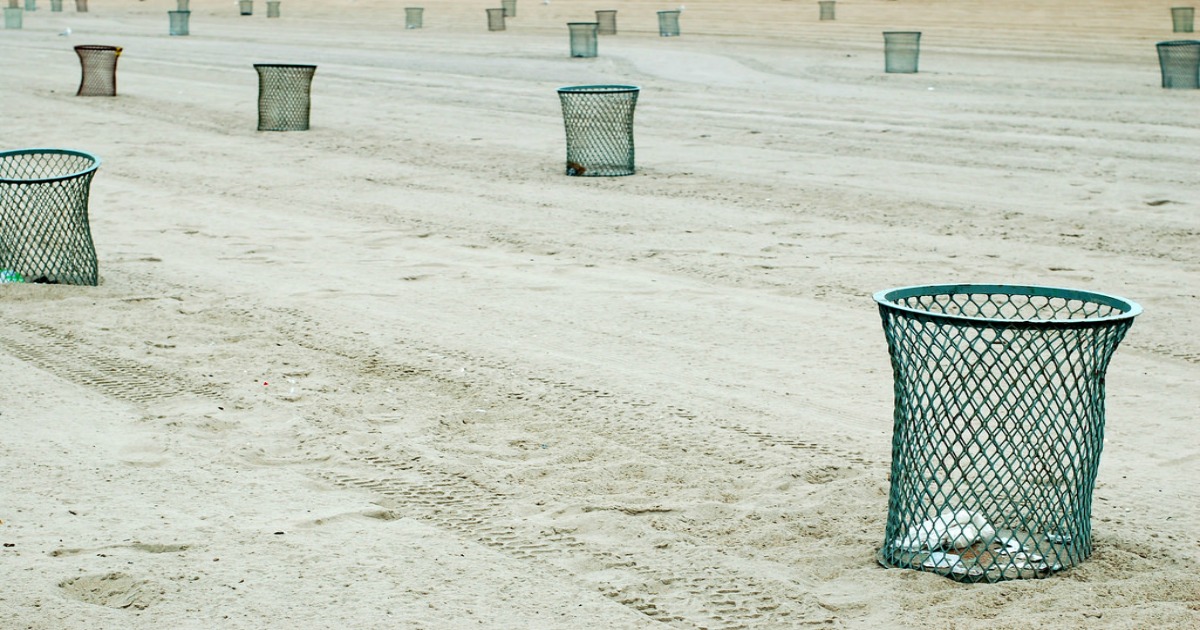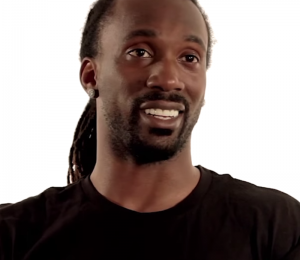
Flickr Creative Commons Photo; CC 2.0
Anyone who spends just a few minutes on social media lately is bound to find some meme, picture, or post insinuating that the year 2016 has been weird and we should just move on from it and forget it.I’ve seen the year 2016 portrayed as a figure being thrown off a boat, a thing set on fire, and a bridge being burned, just to name a few. This year has often appeared to be a strange time, for any number of reasons, and many people (it would seem) just want to forget it, to write it off.
But the year my son was born has been the year of the unexpected. Living in Northern Illinois, I’ve watched the Chicago Cubs win an improbable World Series, the first in 108 years. I’ve seen scores of people mourn the passing of many celebrities they never gave much thought to while alive. They get all nostalgic and claim that “2016 took them from us” (whatever that means). I’ve seen people bemoaning a businessman with no political experience being elected (definitively, in my mind, by the American democratic process) to be the next President. I’m sure you can think of other unexpected or “strange” things that you witnessed in this past year. But as 2017 looms on the horizon, and many reflect on this year come-and-gone, it is imperative that such reflection also take on a theological tint.
It is on the basis of this theological reflection that I want to pose the following question: Does 2016 belong in the trash or in the recycling bin? In other words, is 2016 a year we should just chalk up to being a fluke… a bridge we should burn and never come back to? Or is it something we need to use to make us stronger, as Christians, or even just as members of the human race?
I argue for the latter. As the wise old baboon Rafiki said in The Lion King, “The past can hurt… BUT… you can either run from it OR… learn from it”.
If God’s purposes always win the day (Isaiah 46:10, Job 42:2, Psalm 138:8, Proverbs 19:21, Romans 8:28), then we have to accept that there is no such thing as wasted time, let alone a wasted year. God accomplished exactly what He desired in 2016 and it is up to you and me to (A) understand what He has revealed, learning from it and (B) trust Him by faith for the actions He has taken without revealing His reasons.
So what has transpired in 2016 and how can “recycle” it by reflecting on it through a theological lens, when our hearts just desire to throw it out? Let’s briefly examine just a few of the big ones.
- Race Issues: The Oscar debate in February, The “Black Lives Matter/All Lives Matter” issue, Infamous Police Shootings, accusations of “Racist” upon a candidate (deserved or not).
Theological reflection: To hate someone in your heart (for whatever reason) is to commit murder against them in your heart (Matthew 5:21, 1 John 3:15). Therefore, as one pastor brilliantly noted, racism in your heart is, essentially, committing ethnic genocide in your heart, a sin that grossly needs to be repented of. Racism is not scripturally supported, in any measure. Like Dr. King, let our focus be on character not skin color, and let us hold each and every person to account along that litmus. We cannot control the negative (“racist”) actions of others in this regard (and it is there, both in white and black communities), but we can control it in ourselves, working tirelessly to be part of the solution. Just because you can’t stop the darkness of others, that doesn’t mean you shouldn’t work to shine your own light. Remember, it is CHRIST who MAKES us one.
- Refugee Crises and Domestic Terrorism
Theological Reflection: Do you lock your doors at night? Why? Because you want to feel safe. Many take this position to the doors of their country as well, and rightfully so. Here we find two theological sticking points appearing to be in contrast. How do we welcome in the poor, the stranger, the outsider, and yet protect our own safety and wellbeing? This is the issue at the heart of the refugee crisis, from Syria to Europe, to our own border control checkpoints. Our God is the same God who instructed Nehemiah to build up walls of protection AND the God who knocked down walls for Joshua. The key, as with many things in the scripture, lies in the context. Loving your neighbor and vetting those who see to enter your borders are not mutually exclusive. For example, if you have the spacial, financial, time, and relational resources to bring someone additional into your home, then doing so could be considered generous. If you don’t, it could be foolish or wasteful. If this generous act is done for the wrong person, it could be fatal. The key here, for the individual Christian, is to observe the situation as it lies. Who are they that seek to harm Christians on their own soil? What has been the effect on other countries, like Germany, where border laws have been lax? Where does the refugees’ need truly lie? What does it mean to both serve others and protect ourselves? These are things you must reflection on your own, reading between the lines of your average news soundbite. But let whatever conclusion you draw, focus on the gospel being given to the nations, in word and in action.
- The Presidential Election (Who could forget it, right?
Theological Reflection: While I will not, in this venue, speak to the nature, character, record, or actions of any particular candidate by name, I think it is worth deeply examining the trends that revealed themselves over the course of this election. First, it sent a message that the country is ready for something different. What brought about this desire for something (someone) totally new? Second, thanks to this election, this country is more divided than ever before, as is the American Church. Unity among believers is a blessing (Psalm 133:1). That blessing-producing unity, however, can only come when that non-negotiable plan of God is the focus. Many of these issues dividing the church are black-and-white in the scriptures (gay marriage, abortion, welfare reform, etc.). The problem lies in, and the statistics show that, fewer and fewer “believers” even know the Bible’s stated position on these issues, the result of which is the cultural (and even denominational) gray-ing of the biblically-defined black and white moral boundaries. The key for us as Christians, then, as we move forward into a new year, is to understand clearly the moral demands of any issue, as the scriptures define them. Yes, we are to seek unity with those with whom we disagree, but only in such a way as to leave our understanding of Truth uncompromised. Biblical Christianity, by its very nature, is conservative (doctrinally, ethically, financially, in its worldview… I could go on) and yet the gospel provides a clarion call to all people, including liberals, progressives and skeptics. Jesus disagreed frequently with others, but He never turned them away. His teachings may have divided (e.g. John 6:66), but His relationships were never divisive. Commit yourselves to stand firm in the truth FIRST, and then strive as best you can toward unity. “If possible, live at peace with EVERYONE” (Romans 12:18)
The thing about burned bridges is… you can’t cross them again. In God’s plan, we are always learning, adapting, growing, and being conformed into the image of His Son (Romans 8:29). That path often doubles back over bridges we’ve seen before. Rivers of trial, to challenge and cleanse us, are a lot easier to cross if we haven’t burned old bridges. Come to think of it… Can we EVER burn God’s bridges? No. He didn’t allow Israel to throw out past mistakes in the wilderness, but kept bringing them back to them, in order to produce change. God was patient with them, despite constantly having to tell them “no complaining” or “no worshipping other idols”. If you had a tough year, James says to count it all joy. It was tough for a reason. Not understanding why God is doing something doesn’t give you the right to cast it off as nothing. The key in every circumstance this new year brings (spoiler: there will be some you don’t like) is what young Samuel understood. When God moves, you say “Speak Lord, your servant is listening”. Ask God, moment-by-moment “What are you trying to teach me here, Lord?”. And keep your eyes open.
Billy Graham once quipped that we should have our bible in one hand and our newspaper in the other. Biblical understanding and cultural awareness go hand in hand. It was God’s intention for the wheat and chaff to grow up together in this world. We need to understand clearly, with open eyes, what that looks like. Unless you like gritty coffee, you probably use a filter in your coffee maker. When God’s plan is brewing, we need the filter of His word to help us brew a godly life in response to everything this New Year will bring. We need to understand not only what is going on around us, but how the bible says to respond to it. (Keep searching. The answer’s in there, regardless of what the issue is).
It is what we learn from our past, not what we throw away from it, that drives us forward…. toward righteousness… toward peace … toward our neighbor… toward a better world…. and most importantly, toward Christ.



